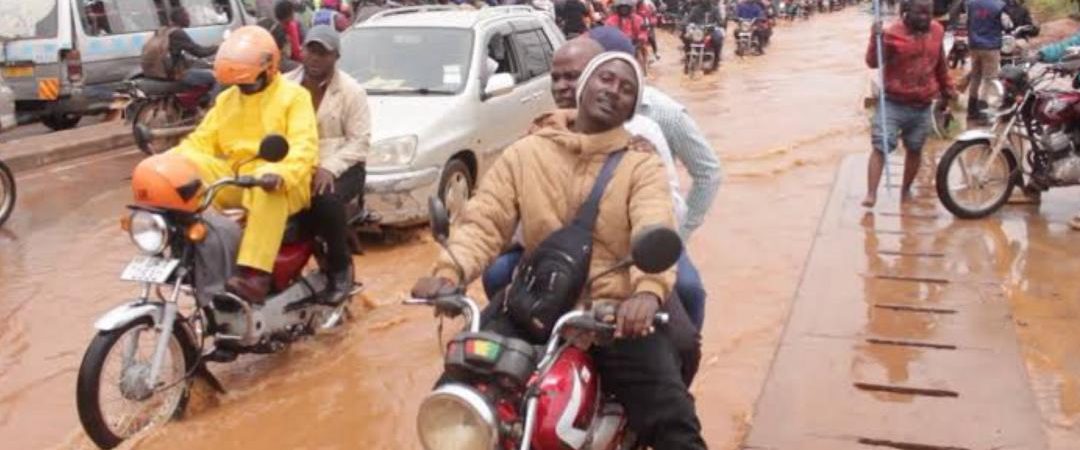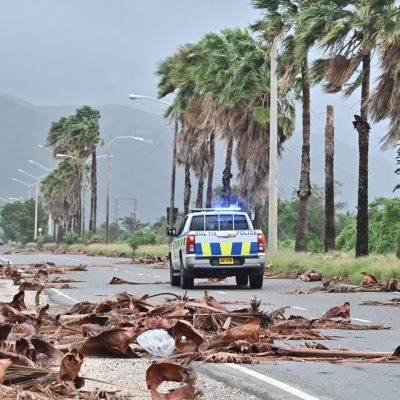We Are All Contributing to Kampala’s Waste Crisis
By Annah Nafula
The relationship between Kampala and waste management can only be described in one word: disrespect.
A city as vibrant and alive as ours should not be so deeply entangled in such a miserable mess, yet here we are, grappling with a broken system of both solid and liquid waste management.
The rains are upon us. A familiar, and frankly disgusting, ritual unfolds.
In areas like Kamwokya (near Kira Road) and Mawanda Road, some city dwellers seem to be on standby, waiting to release sewage the moment the clouds darken.
In what has become a bizarre routine, someone is usually dispatched to “release” the waste as soon as the downpour begins.
Sometimes, their anticipation fails them, and the sewage ends up flooding the roads without enough rain to wash it away.
The result? Filthy, overflowing streets, especially near places like Kamwokya Market, restaurants, and shops that serve thousands daily.
How is it that this kind of public nuisance continues unchecked? Where is Kampala Capital City Authority in all this? Are they only visible when chasing street vendors and petty offenders, while turning a blind eye to these serious health hazards?
Then there is the issue of solid waste. The garbage collection trucks, which should be solving part of the problem, have ironically become a mobile mess.
These trucks often overfill, and as they weave through the city from suburb to landfill, garbage falls off and litters the roads.
It is a case of misplaced diligence, workers focused only on the instruction to “collect garbage,” while forgetting the broader goal of maintaining a clean city.
What is the point of collecting waste from Wandegeya if it will be scattered all the way to Kitezi?
Let us not ignore the street sweepers, particularly the hardworking women who rise at dawn to clean our roads.
While their commitment is admirable, the method remains flawed.
Most sweep dirt, dust, and debris directly into trenches.
But when the rains come, these trenches fail to drain water because they are now filled with silt and rubbish.
The very act meant to clean the streets ends up clogging the drainage systems.
There is something deeply troubling about this, a collective disconnect from cause and effect.
Somehow, many fail to see that even the smallest irresponsible act has long-term consequences.
Throwing a plastic bag (kavera) into a trench today could mean a flooded road tomorrow.
The irony is, when those floods come, the very same people cry foul and blame the government.
Yet some individuals and institutions have set high standards, and they work.
Take my workplace, for example: Kavera is banned.
It is a simple policy, and everyone abides by it. But even this sometimes meets resistance.
Some complain about the inconvenience, only to later be delayed on their way to work because the roads are flooded, the very consequence of the plastic bags we are trying to avoid.
We must understand that the fight against climate change, environmental degradation, and urban chaos does not always require massive budgets.
Often, it begins with each of us acknowledging our role and changing our behavior.
When we begin to appreciate how our seemingly minor actions escalate into environmental disasters, only then can we start to make responsible, informed choices in our daily lives.
The time for finger-pointing is over. It is our discipline, or lack thereof, that has built the Kampala we see today.
If we want to see change, it must begin with each one of us understanding that we are all custodians of this city.
Let us not wait for the next flood to remind us of the price we pay for our collective indifference.
Also read: Buvuma Island: A Quiet Gem on the Rise






